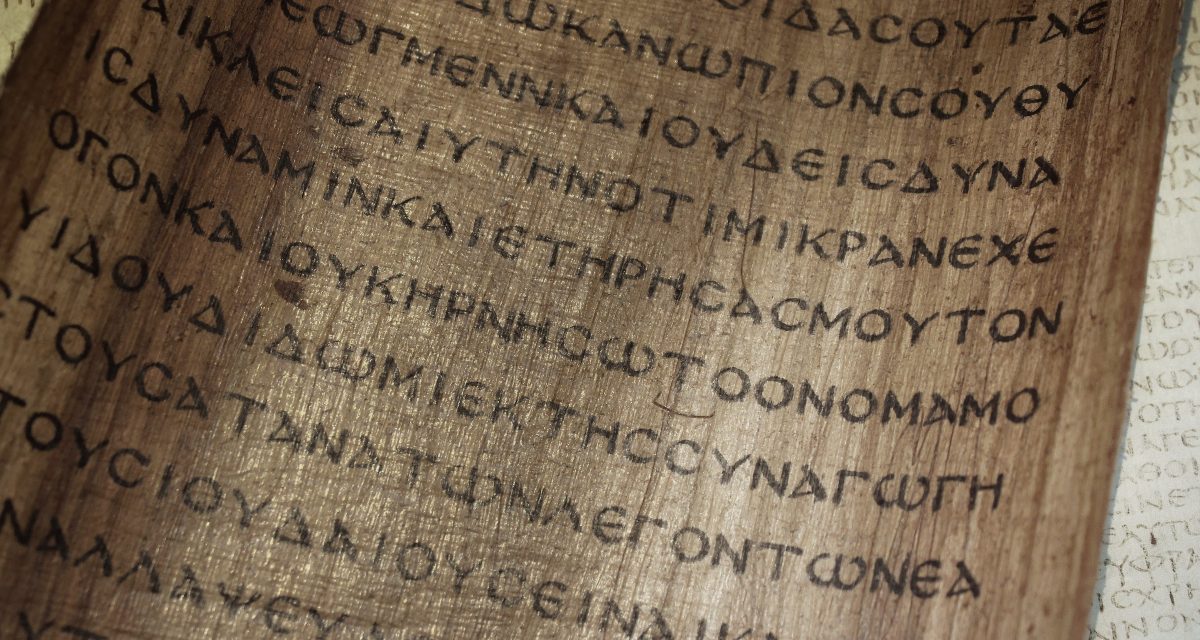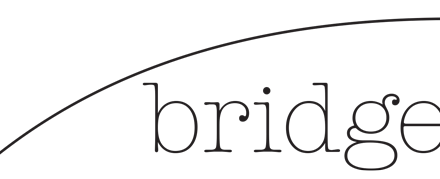Arguably most people realize that words such as democracy, philosophy or tragedy come from Greek, since the very concepts which they represent also have their roots in Greece. And you might also suspect the Greek origins behind some strange and obscure words such as anathema, synecdoche or onomatopoeia, as well as long and hard-to-pronounce medical or scientific terms terms such as otorhinolaryngology or trichotillomania.
Yet it might surprise you to find out that a number of words used in everyday conversation –from music and story to idea or plastic– are actually Greek!
Below we will list some of these words and provide their etymology: many among them –perhaps the majority– have come to English through Latin, some have come through French and others directly through Ancient Greek. Finally, many have been coined by English (or other non-Greek) speakers using Greek words to label new concepts and name new objects.
Some of these words do come from a particular background, such as medicine, science or political theory; they are however often used by English speakers without any special knowledge of these fields or particular familiarity with their terminology.
It should also be noted that, although these words have come into other languages from Ancient Greek (Classic, Hellenistic and, rarely, Medieval), they are, almost in their entirety, still used in contemporary Greek, either in their original form or with slight alterations, bearing the same or similar meanings; even those coined by foreign speakers have been reborrowed as semantic loans.
 Music and theater
Music and theater
Both these words are themselves Greek; the latter comes from the word theatron, which derived from the word theaomai “to observe, to watch”, hence meaning “place of viewing”. Music (mousiké in Greek) was an adjective meaning “of the Muses”, the nine Greek deities symbolizing the arts; museum is also named after the Muses.
Several more words relating to music and the performing arts come from Greek: drama “deed, theatrical play” derives from dro “to act, to take action”, while melodrama is a compound with melos “music, tune” – and, in its turn, tune, as well as tone, derives from tonos, “strain, pitch”, from teino “to stretch, strain”. Also, theme comes from thema “subject, case, premise”, deriving from tithemi “to set, put”.
Scene comes from skené “stage”; harmony from harmonía (from harmozo “to joint, fit together”); chord from chordé “string (of an instrument)”; rhythm from rhythmós, which derives from the verb rheo “to flow” (rhyme may also indirectly derive from rhythmós). Chorus as well as choir derive from chorós, meaning the chorus of Greek tragedy; that same word also came to mean (to this day) dance, hence the word choreography.
Ode (odé) meant “song” – hence melody from melodía (combined with melos “music”), and rhapsody from rhapsodía (combined with rhapto “to sew”), the latter deriving from the rhapsode, a performer of epic poetry who would mix and fuse various songs/myths together. Tragedy (tragodía) is also a compound of odé with tragos “male goat”, possibly as an allusion to goat-satyrs, the companions of Dionysus (Dionysos), god (among other things) of theater.
 The Odeon of Herodes Atticus near the Acropolis
The Odeon of Herodes Atticus near the Acropolis
Comedy, on the other hand, is a compound with komos “festival, drunken feast”, and parody with para “beside”. According to the ancient Athenians, watching a tragedy led to emotional catharsis “cleansing, purification”. On the other hand, the audience can enjoy the suspense of watching an acrobat (akrovates, from akron “peak, edge” + vaino “to walk, step”), or by entertained by pantomime – from pantomimos “imitator of all” (pantes “everyone” + mimeomai “to imitate”; the verb mimic as well as internet memes also come from mimeomai).
Guitar comes from kithara (a type of lyre), cymbal from kymvalon, and echo from echó, deriving from the word echos “sound”, while lyric comes from the adjective lyrikos, meaning “of the lyre”. Talent derives from talanton, a unit of weight and money used in ancient Greece and then in Rome, where it would also later acquire the sense of a gift from the gods.
The suffix “-phone“, deriving from phoné “voice, sound”, can be found in the compound words gramophone (gramma “letter” from grapho “to carve, write”), megaphone (megas “big”), microphone (mikros “small”) – and, of course, telephone (tele “from afar”). Symphony (symphonía) means “agreement” as well as “consonance”, while stereophonic is a compound with the adjective stereos “solid”; phonetic also derives from this word, while acoustic means “auditory”.
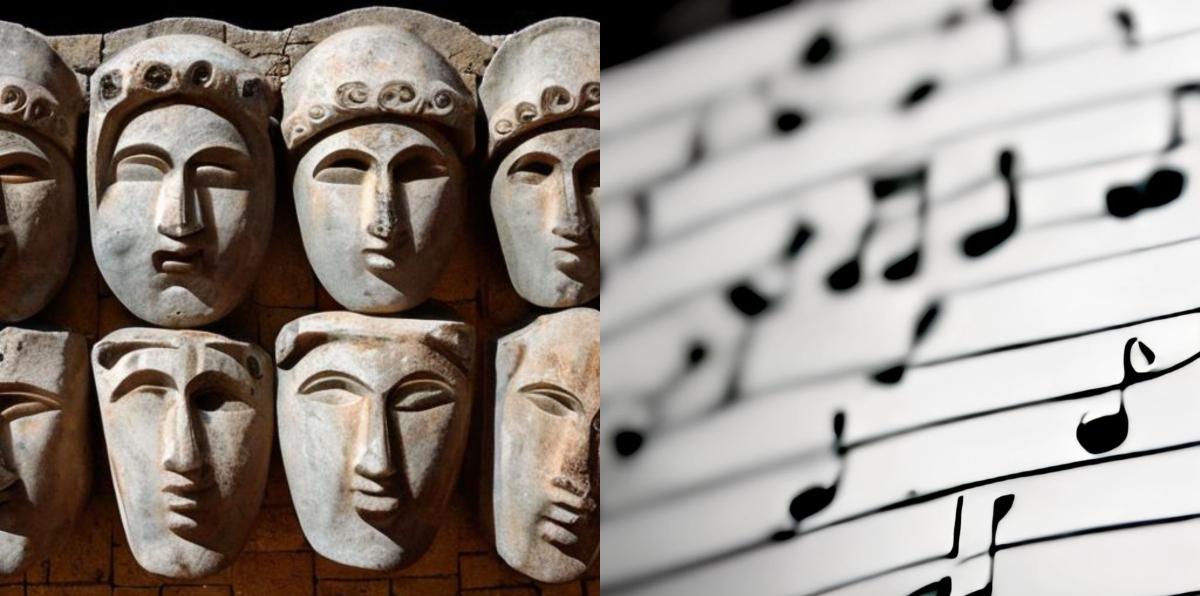 Orchestra was the circular space in an ancient theatre on which the chorus would dance, and revived from the verb orcheomai “to dance”, while hymn derives from hymnos “song, anthem”. Disk (and its alternate spelling disc, where “compact disc”,”disc jockey” and “discotheque” also come from) derives from diskos. We also sometimes call actors thespians, from the name of Thespis, a poet who, according to Aristotle, was the first person ever to appear on stage as an actor.
Orchestra was the circular space in an ancient theatre on which the chorus would dance, and revived from the verb orcheomai “to dance”, while hymn derives from hymnos “song, anthem”. Disk (and its alternate spelling disc, where “compact disc”,”disc jockey” and “discotheque” also come from) derives from diskos. We also sometimes call actors thespians, from the name of Thespis, a poet who, according to Aristotle, was the first person ever to appear on stage as an actor.
Last, but not least: Cinema comes from the french cinématographe, a term coined by the Lumière brothers in the 1890s; it is a compound of the word kinema “movement” + grapho “to write, draw”.
Speech and writing
The Greek alphabet derived from the earlier Phoenician one, and was the first to have distinct letters for vowels as well as consonants; the Latin alphabet was based on the Greek one, and was in its turn the basis (“base, foundation”) for all Latin-script alphabets, including the English one. The word alphabet itself is a compound of the names for the first two letters of the Greek alphabet: alpha and beta.
 Photo by Aaron Burden on Unsplash
Photo by Aaron Burden on Unsplash
The word paper derives from papyrus, from the Greek papyros (which may have pre-Greek roots). History (historía) derives from the verb historeo “to research (and) record”; story also comes from this same word, while trope derives from tropos “manner, style”. Poem (poiema) and poet (poietés) derive from the verb poieo “to make, create”; the word character (as mentioned in the previous installment) comes from Greek, as does the word symbol (symvolon) from syn “together, plus” + vallo “to throw, place”. Syllable (syllavé) derives from syllamvano “to gather together” (syn + lamvano “take”).
The end of a phrase (phrasis “way of speaking, expression”) is indicated by a period (periodos, from peri “around” + hodos “way”) which in Greek has both the sense of a complete sentence and of a length of time; a brief pause (pausis, from pauo “to stop”) is marked by a comma (from kopto “to cut”); apostrophe derives from apo “from” + strophe “turn”. Hyphen is a compound of the words hypo “under” + hen “one” while parenthesis comes from para “beside”, en “in” and thesis which means “place, position”; colon means “member, limb, part of a verse” and asterisk (asteriskos) means “small star”.
Some of the basic concepts in speaking, writing and storytelling take their names from Greek, including idea, rhetoric (rhetoriké), theory (theoría), analysis, hypothesis, but also fantasy (phantasía), mystery (mysterion), myth (mythos) and hero (heros). The name protagonist comes from protos “first” + agon “struggle”, while antagonist uses anti “against” and archetype comes from arché “beginning” + typos “type”.
Metaphor (metaphora) comes from metaphero “to transfer” (meta “after, across” + phero “to carry”); analogy (analogía) means “proportion”, parable (paravolé) means “comparison, juxtaposition” (from the verb paravallo, para “beside” + vallo “to throw, place”), and hyperbole (hypervolé) means “exaggeration” (from hypervallo, hyper “above, more” + vallo), while allegory (allegoría) comes from allos “other” + agoreuo “to speak publicly” (deriving from the word agora “assembly”).
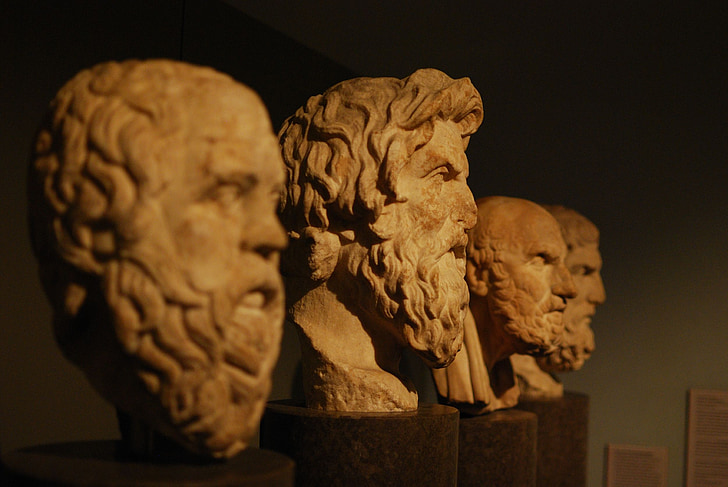 Philosophy (philosophía) means love (philía) of knowledge, wisdom (sophía). Canon means “rule, law” while paradigm (paradeigma, from para “beside” + deigma “sample”) means “example”. Grammar (grammatiké) derives from gramma “letter” (as does anagram), while syntax (syntaxis) is a compound of syn and tasso “to arrange”. Logic (logiké) comes from logos “speech” from which (as mentioned in the previous installment) also come words like dialogue, prologue, epilogue, analogue etc., as well as all the words ending in -logy. Etymology, in particular, is a compound with the word etymos “true”.
Philosophy (philosophía) means love (philía) of knowledge, wisdom (sophía). Canon means “rule, law” while paradigm (paradeigma, from para “beside” + deigma “sample”) means “example”. Grammar (grammatiké) derives from gramma “letter” (as does anagram), while syntax (syntaxis) is a compound of syn and tasso “to arrange”. Logic (logiké) comes from logos “speech” from which (as mentioned in the previous installment) also come words like dialogue, prologue, epilogue, analogue etc., as well as all the words ending in -logy. Etymology, in particular, is a compound with the word etymos “true”.
Dialect, dyslexia and lexicon derive from the same root, and in particular form the verb lego “to speak, say” and the noun lexis “word”, while idiom (idioma “peculiarity, distinctive phraseology”) comes from idios “one’s own, private, separate”. Chart is derived from chartes “papyrus, sheet” while episode (epeisodion, “a parenthetic addition”) is a compound of epi “on” + eis “into” + hodos “way”. Euphemism comes from eu “well” and pheme “talk, reputation” and aphorism from apo “off” and horizo “bound, define”. Synonym (and antonym) comes from syn (and anti “against”) + onoma “name, noun”.
Crisis means “judgment, choice, decision” and the words critic, criticism, critical, etc., all stem from the same root. The adjective esthetic is deriving from the word aisthesis “sense, feeling”, while idyllic comes from the idyl (eidyllion, a diminutive of eidos “form”) a type of short pastoral poem. The word form itself comes from the Latin forma, which possibly comes from morphé “shape, appearence”; semantic comes from semantikos (from semasía, “meaning, significance”). Epitome means “an abridgement, an abridged version of sth” from epi “on” and tomé “incision” (the same word from which anatomy is derived).
All words ending in -graph or -gram (such as paragraph, epigraph, anagram, epigram) come from the combination of a prefix or other word with the verb grapho “to inscribe, write” – where the adjective graphic (but also the word graffiti) comes from. (Hologram, in particular, comes from the word holos “whole” and kilogram comes from khilioi “one thousand”.) Finally, utopia is a word coined in 1516 by Sir Thomas More, author of the eponymous (epi + onoma “name”) book, by combining the words ou “no, not” and topos “place, site”.
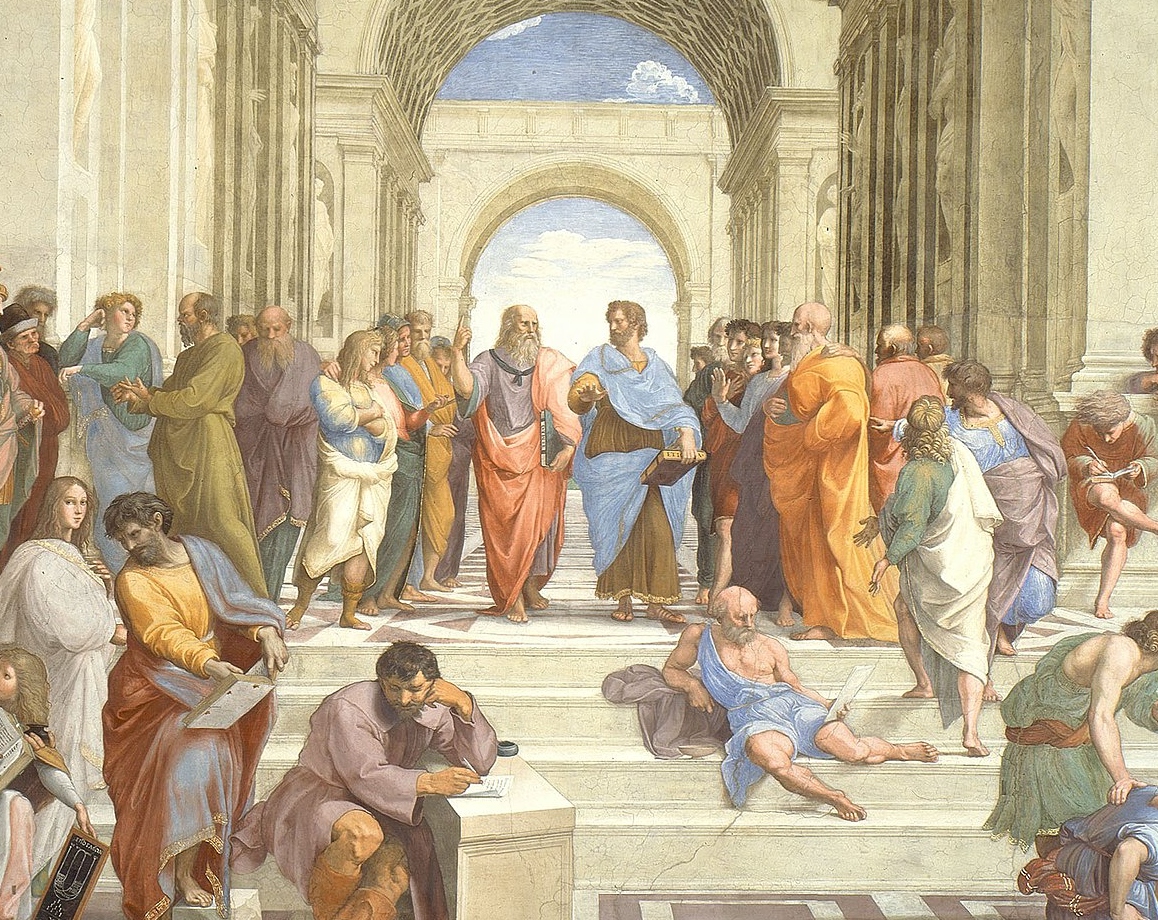 Education and sports
Education and sports
The word school comes from its Greek equivalent, scholeion, which, funnily, is derived from scholé, a word that used to mean “rest, leisure” (it now has the sense of higher education establishment); scholar and scholastic also stem from the same root. Also, academy (akademía) takes its name from the school (in both the sense of a place of learning and of a school of thought) founded by the famous philosopher Plato; it was named after the site where it was seated, and might derive from ekas “far” and demos “deme (municipality)”. Diploma literally means “folded paper”, from diploo “to fold”.
The actual etymology of syllabus is the word sittyvos “list”; its current corrupt form, however, arose from a misprint in an edition of Cicero’s works, and was influenced by the verb syllamvano “to collect, put together”. Much of what this may contain also comes from Greek words, such as mathematics (mathematika, from mathema “study, learning”), physics (physiké “natural” from physis “nature”), chemistry (chemeía, from chymos “juice, fluid”), biology (from vios “life”), geometry (geometría from gê “earth, soil” + metron “measure” and trigonometry (trigonon “triangle” from gonia “angle”) etc.
The word encyclopedia (originally encyclopaedia) appeared during the Renaissance, as a mistaken univerbated form of the phrase enkyklios paideía “all-round, general education” – the word enkyklios (from en “in” + kyklos “circle”) means “circular, all-round”, while paideía means “education, child-rearing”.
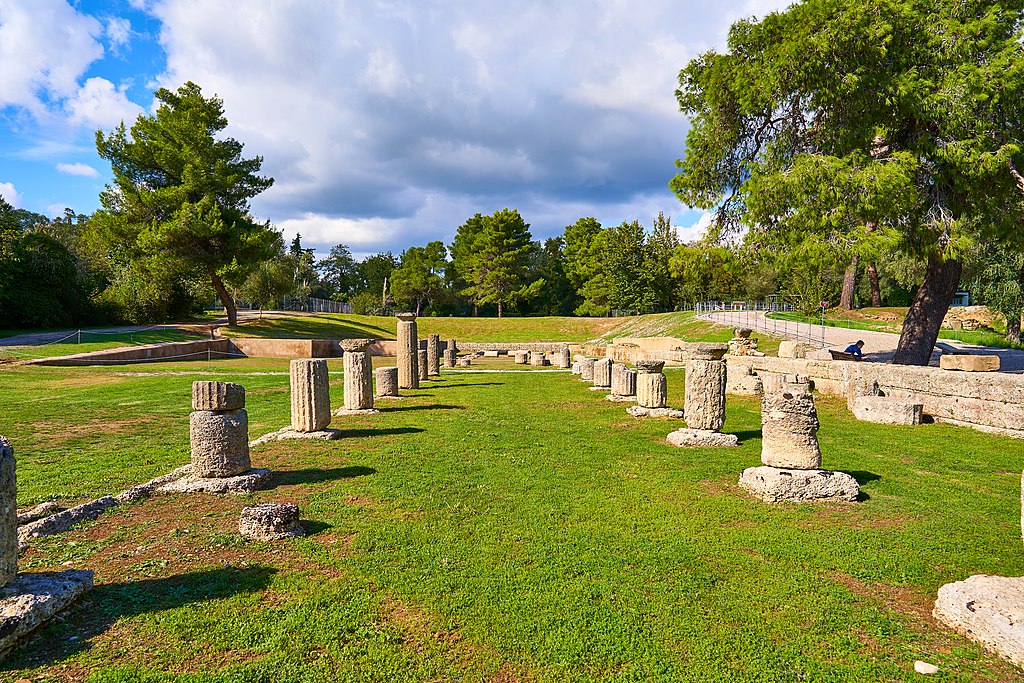 Remains of the Gymnasion of Ancient Olympia (by George E. Koronaios via Wikimedia Commons)
Remains of the Gymnasion of Ancient Olympia (by George E. Koronaios via Wikimedia Commons)
But gym also comes from Greek: The Latin word gymnasium derives from gymnasion, a training facility, which takes its name from the adjective gymnos “naked”, as young men in Ancient Greece had to exercise and compete in sports completely in the nude. Athlete (athletés) is another Greek word, deriving from athlos “struggle, contest” and/or athlon “prize”, while stadium comes from stadion “a measure of length, a running track”. Trophy comes from tropaion, literally “[monument] commemorating a victory over one’s foes”, deriving from tropé “turing; rout” (where tropic also comes from). Cardio is also Greek (from kardía “heart”), although the entire word (cardiovascular) is a compound with the Latin word from vessels.
Food and nutrition
Does the aroma (“fragrant smell”) coming from a busy kitchen make you feel euphoria (from euphoros “bearing well”) or even nostalgia (nostos “homecoming ” + algos “pain”) for the tastes of your childhood? Do you follow a diet (diaita, “dwelling, accommodation” and, by extension, “lifestyle” which can include nutritional habits) based on organic (from organon “organ, instrument”) foods?
 In any case, you might be surprised to learn that most cooking fats derive their names from Greek; first and foremost, oil comes from elaion “olive oil”, while butter from voutyron, literally “cow’s cheese” (vous “ox” + tyros “cheese”). Even lard comes from the Latin lardum, which is believed to ultimately come from larinos “fat” and/or laros “pleasing to the taste”. A more modern addition, margarine took its name from margaron “pearl” in allusion to its pearly luster.
In any case, you might be surprised to learn that most cooking fats derive their names from Greek; first and foremost, oil comes from elaion “olive oil”, while butter from voutyron, literally “cow’s cheese” (vous “ox” + tyros “cheese”). Even lard comes from the Latin lardum, which is believed to ultimately come from larinos “fat” and/or laros “pleasing to the taste”. A more modern addition, margarine took its name from margaron “pearl” in allusion to its pearly luster.
Another breakfast staple you might not expect to find on this list is marmalade: it comes from the Portuguese word for quince, marmelo, deriving from melimelon (a variety of apple) from meli “honey” + melon “apple”. Melon –which also has the sense of fruit in general– is in fact the root of melon, which comes from the word melopepon (the Greek word for melon), a compound with pepon “ripe, mellow” from pesso “to soften, ripen”; another compound with melon is chamomile (chamaimilon, from chamai “down, on the ground”).
 Rose also derives its name from the word rhodon of the same sense, lily from leirion, petal from petalon, cypress from kyparissos, cherry from kerasion (possibly of Anatolian origin) nectarine takes its name from nectar, the mythological drink of the gods on Mount Olympus. A few herbs and spices also take their names from Greek, including oregano (origanon) from oros “mountain” + ganos “brightness, freshness”, basil (vasilikos “royal”), thyme (thymon), celery (selinon), cardamom (kardamon “garden cress”), cinnamon (kinamomon, possibly meaning “black cardamom from China”) and coriander (koriandron). Also sesame comes from sesamon (probably of Akkadian origin), while licorice derives from glykyrhiza “sweet root”.
Rose also derives its name from the word rhodon of the same sense, lily from leirion, petal from petalon, cypress from kyparissos, cherry from kerasion (possibly of Anatolian origin) nectarine takes its name from nectar, the mythological drink of the gods on Mount Olympus. A few herbs and spices also take their names from Greek, including oregano (origanon) from oros “mountain” + ganos “brightness, freshness”, basil (vasilikos “royal”), thyme (thymon), celery (selinon), cardamom (kardamon “garden cress”), cinnamon (kinamomon, possibly meaning “black cardamom from China”) and coriander (koriandron). Also sesame comes from sesamon (probably of Akkadian origin), while licorice derives from glykyrhiza “sweet root”.
Finally, paste and pastry derive from the Latin pasta (where the famous Italian pasta also derives from) which, in turn, derives from the ancient Greek pasta “[salted/sprinkled] barley porridge”, from the adjective pastos “sprinkled, salted” from the verb passo “to sprinkle”.
In “Common words you (probably) didn’t know were Greek – Part 1“: words about human character, animals, biology, geography and planets
In “Part 3“: words from the fields of time and space, everyday objects, politics, but also crisis and war
In “Part 4“: words from the fields of religion & the supernatural, science & technology, and several miscellaneous entries
Also discover: Greek words about health and medicine in English
Also read via Greek News Agenda: Herbs and spices from Greece; Plato’s Academy today; USA city names of Greek origin – Part 1; USA city names of Greek origin – Part 2
N.M.

